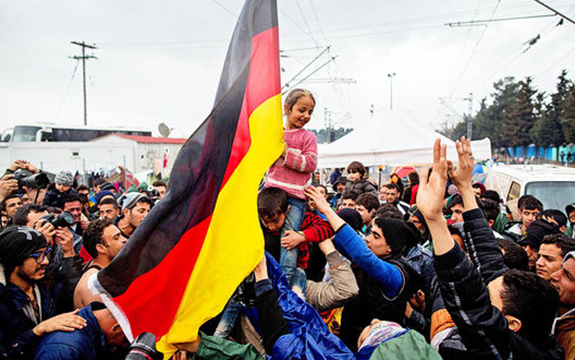Angela Merkel’s line in the sand

In Summary
- Analysis for Inside Story by Klaus Neumann, Swinburne University of Technology
Next Sunday, 13 March, has been looming large in the imaginations of German politicians, policy-makers and commentators in recent months. Voters in three states – Baden-Württemberg and Rheinland-Pfalz in the West, and Sachsen-Anhalt in the East – will elect new state parliaments. It is expected that Angela Merkel’s federal government in Berlin will be punished at the polls, albeit by proxy, for mismanaging Germany’s response to refugees.
Prominent Christian Democrats have been urging Merkel, the leader of their party, to set an upper limit on the number of refugees allowed into Germany, and have criticised her for opening the country’s borders to refugees in September last year. The conservative Christian Democrats’ coalition partners have also sought to distance themselves from the German chancellor: in November, Horst Seehofer, the leader of the Christian Social Union – the Christian Democrats’ sister party in Bavaria – publicly humiliated Merkel over her stance on refugees at a party congress, and four weeks ago he described her refugee policies as Herrschaft des Unrechts (a rule of injustice) because, he argued, she had acted outside the law. The accusation was designed to hurt deeply: most Germans would associate a country in which Unrecht reigns supreme as an Unrechtsstaat, a term reserved for Nazi Germany and for the communist-era German Democratic Republic, where Merkel lived most of her life.
Most observers were convinced that the government would have either restricted the number of refugees arriving at the border in time for this Sunday’s elections, or abandoned its policy of admitting all those who presented themselves. Some speculated that Merkel, if she proved inflexible, would be replaced, or that she would go on to be toppled after 13 March if voters desert the Christian Democrats in droves.
Until recently, Merkel herself did little to dampen the expectation that her government would be able to get on top of the situation. She assured Germans that the European Union would eventually come to Germany’s rescue by agreeing to a fair distribution of refugees among member states. At the same time, she insisted that the only way to address the refugee crisis in Europe effectively was to tackle its root causes.
Continue reading on Inside Story

